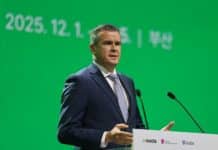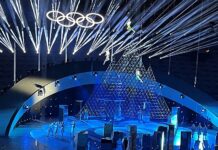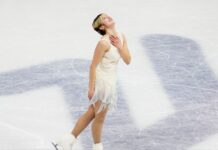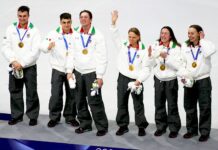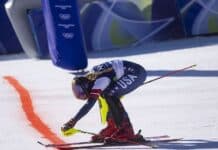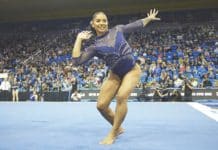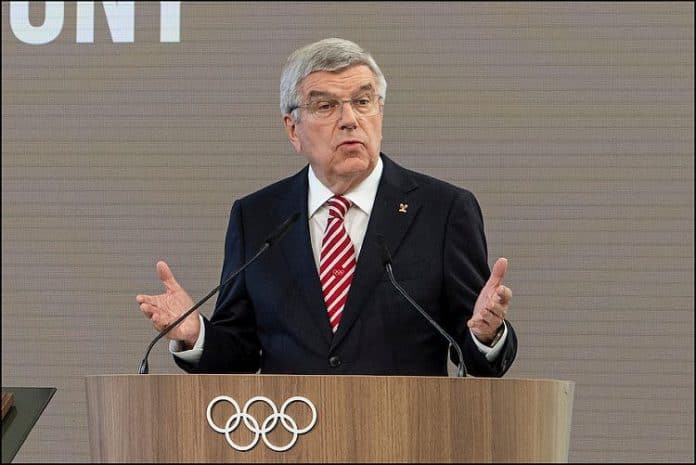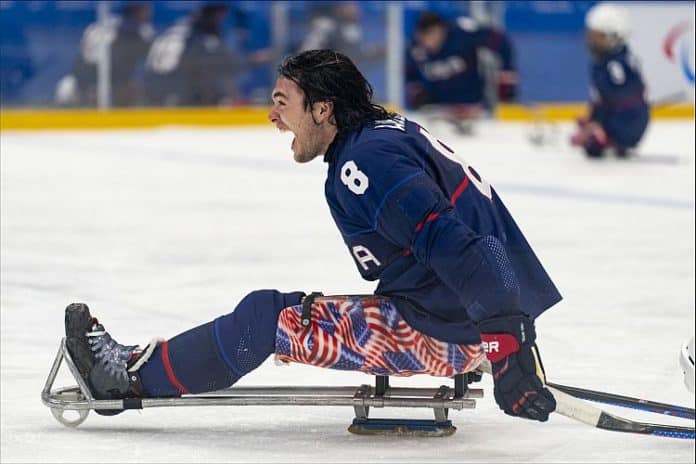★ The Sports Examiner: Chronicling the key competitive, economic and political forces shaping elite sport and the Olympic Movement.★
★ To get the daily Sports Examiner Recap by e-mail: sign up here! ★
≡ THOMAS BACH IN REVIEW ≡
At 71 years, five months and 26 days, Thomas Bach (GER) is now the Honorary President of the International Olympic Committee, having completed his 12 years as the leader of the Olympic Movement on Monday.
His two terms saw plenty of controversy, upheaval and success, and while his legacy will still be shaped by future events, it’s not too soon to consider what he achieved and where he stands among the nine leaders of the Olympic Movement.
Bach came in at a time of turmoil, but also with money in the bank. At the end of the Jacques Rogge (BEL) tenure, in 2013, the IOC showed $3.448 billion in assets and $1.745 billion in reserves, designed to allow the organization to survive even with the cancellation of an Olympic Games or Winter Games.
But there was discontent, and disunity, as Rogge had been a fairly weak leader, especially compared to his predecessor, Spain’s Juan Antonio Samaranch, who had modernized the IOC dramatically over 20 years, but who had also been in charge as corruption had followed the expansion of the Olympic Games into a desirable political achievement.
So Bach sought to change things. And he did:
● Host City selection
The 1999 corruption reforms implemented in the wake of the selection of Salt Lake City as the host for the 2002 Winter Games had not ended the problem. Questions were raised about the 2009 selection of Rio de Janeiro (BRA) for the 2016 Olympic Games and possibly Tokyo in 2013 for the 2020 Olympic Games.
Further, the demands of the bid process required host cities and countries to spend millions chasing IOC members and creating ever more lavish spectacles to try and impress them.
Bach ended this with his signature reform, Olympic Agenda 2020, passed in December 2014. First among the 40 recommendations was to limit and simplify the process and where and how candidate cities could spend money. In 2019, public campaigning was essentially ended with the creation of Future Host Commissions for the Olympic Games and Winter Games, with which interested parties could enter “continuous dialogue” on possible candidatures.
After the 2015 election for the 2022 Winter Games in which four European candidates withdrew and Beijing (CHN) won over Almaty (KAZ) by 44-40, Bach saw the interest in bidding for the Games at an all-time low.
With Paris (FRA) and Los Angeles (USA) both interested in 2024, Bach arranged for a double award – the first time in a century for the IOC – for 2024 and 2028 and gave him time for more reforms. The last host election with competitive voting by IOC members was in 2019, as Milan Cortina (ITA) defeated Stockholm (SWE), 47-34, to host the 2026 Winter Games, with hosts set for 2028-2030 Winter-2032-2034 Winter.
Now, bidding costs are a tiny fraction of what they were previously, and losing bidders are not publicly humiliated by standing in a room watching some other city/region/country delegation celebrate.
The IOC membership does not like having this decision, in effect, removed from their hands, and there are changes being discussed. But Bach’s vision produced a healthy interest in hosting the Games that works, albeit with a lot less drama.
● Hosting of the Games
With the passage of Olympic Agenda 2020 and a series of smaller reforms packaged as “The New Norm” in 2018, the IOC completely changed its view of how the Olympic and Winter Games should be hosted.
New stadiums just for the Games were out and use of existing facilities was suddenly not only preferred, but required wherever possible. The IOC’s new approach was summarized as:
“The Games should adapt to the host, not the host to the Games
“The project must be aligned with local long-term socio-economic development plans. Existing venues should be used as much as possible, even if they are outside the main host region. New venues should be built only if there is a solid legacy and business case, in line with the needs of the population.”
If no existing venue was available, a temporary solution was now preferred, saving billions in expenditures on facilities that were not really needed. Moreover, the IOC’s new view allowed potential hosts to spread a Games more widely and take advantage of regional facilities, not just ones within a city.
● Russia and doping
A December 2014 documentary on the German ARD channel – “Secret Doping – How Russia Makes Its Winners” – exposed a massive Russian state-sponsored doping program that exploded in 2015.
A World Anti-Doping Agency inquiry report released in November 2015, led by the highly-respected IOC member Dick Pound (CAN), confirmed the scheme and led to a suspension of the Russian Anti-Doping Agency.
The IOC was caught in the middle, with the Rio Games coming quickly, and Bach eventually announced that the International Federations could decide at what level Russian athletes could participate. From 436 athletes in London in 2012, Russia had 282 in Rio and just one in track & field, long jumper Darya Klishina, who lived and trained in the U.S.
The Russian Olympic Committee was suspended for three months over the doping scandal in late 2017, allowing only “neutral” athletes for the 2018 Winter Games in South Korea. By mid-2018, the IOC had helped to found the independent International Testing Agency, to actually carrying our doping programs at major events so that no accusations of bias could be alleged.
A 2017 IOC review commission head by IOC member Denis Oswald (RUS) disqualified 43 Russian athletes from the 2014 Sochi Winter Games, although 30 findings were reversed by the Court of Arbitration for Sport. But Bach and Russia would be at odds from here on.
● Russia and war
Russia’s place at the Olympic Games was impacted by the doping scandal for years and only the “Russian Olympic Committee” was allowed to compete at Tokyo 2020 in 2021. Then, just after the closing of the 2022 Winter Games in Beijing (CHN), Russia invaded Ukraine and began an aggression which continues to this day.
The IOC led the response, recommending that athletes from Russia and its ally Belarus, be removed from international competitions for their own safety, and banning all teams. This was complied with almost immediately.
As the Russian invasion dragged on and degenerated into stalemate thanks to Ukrainian resistance, Bach quietly oversaw a movement to allow athletes from Russia and Belarus who had not supported the war to be able to compete as “independent neutral athletes” in individual events. Eventually, just 17 Belarusian and 15 Russian athletes were allowed to compete at the Paris 2024 Games, across 10 sports.
In response to the takeover by the invading Russians of regional sports organizations that had been under the control of the Ukrainian National Olympic Committee, the IOC suspended the Russian Olympic Committee in October 2023. That ban still stands.
● Tokyo 2020 and Covid
Bach’s biggest challenge came with the arrival of the unexpected Covid-19 pandemic that forced the first-ever postponement of an Olympic Games, from 2020 to 2021.
There was a widespread belief that these Tokyo Games would never happen. But they did, without spectators and with unpleasant, antiseptic conditions that strained everyone’s patience. But they happened, and the Japanese government announced just 163 positives among 676,789 tests (0.02%).
Essentially the same playbook was used for the 2022 Beijing Winter Games, with just 172 Covid positives reported out of 2,022,170 tests (0.01%).
Both Games came off, meaning Rogge’s rainy-day reserves did not have to be tested, although the IOC made loans to International Federations which could not wait until 2021 for the television revenue dividend they were expecting at the end of 2020.
If this sounds like a lot, these are just the most impactful highlights of the Bach Era. He was a decisive leader, but also encouraged discussion and consultation, even if he already had an idea of what the end result would be.
And he had a lot of other things going on:
● Under Bach’s leadership, the first IOC Refugee Olympic Team appeared in Rio in 2016 and the project continues to grow.
● Bach undertook a first-ever liaison with the electronic gaming community, eventually resulting in an agreement to create the first Olympic Esports Games in Saudi Arabia. Originally slated for 2025, the first edition is now expected to be held in 2027.
● Given its financial resources and the growth of a professional staff beyond 500, Bach’s IOC built Olympic House in Lausanne to house its entire workforce and create an architectural statement on the size and power of the Olympic Movement.
He also championed much closer relationships with international organizations, especially those related to the United Nations, and other non-governmental organizations worldwide.
Bach also oversaw a continuing expansion of the IOC’s financial power, with broadcast rights increasing and also The Olympic Partner (TOP) program, which had 15 companies signed up for the 2021-2024 quadrennial ending with the Paris Games.
So Bach passed the torch to new IOC President Kirsty Coventry (ZIM) with $6.120 billion in total assets, with reserves of $4.880 billion.
¶
So where should Bach be ranked among the nine IOC chiefs? TSX looked at the rankings question previously in 2020, asking whether Samaranch was the greatest IOC President ever.
My answer then was no, that Samaranch – who brought the IOC from carbon paper to computers during his time – must be ranked second, to French founder Pierre de Coubertin, the inspiration and driving force that brought the Games back from memory to reality.
Samaranch created the modern IOC, and Bach re-engineered it to fit 21st Century needs for economy, involvement and values. As he reminded audiences relentlessly, today’s Olympic Games must be “fully aligned with our Olympic Agenda reforms; Games that are younger, more urban, more inclusive and sustainable.”
So, for me, Bach ranks third, and well ahead of the other six:
(4) Sigfrid Edstrom (SWE: 1942-52)
(5) Jacques Rogge (BEL: 2001-2013)
(6) Henri de Baillet-Latour (BEL: 1925-42)
(7) Demetrios Vikelas (GRE: 1894-96)
(8) Avery Brundage (USA: 1952-72)
(9) Lord Killanin (IRL: 1972-80)
And what about Coventry? At 41, she is the youngest IOC chief since de Coubertin, the first woman, first African and with seven Olympic medals, the most decorated athlete ever to serve as the IOC’s leader.
She inherits an immensely powerful IOC, that dominates all of the Olympic Movement with the exception of football and FIFA, but that still has issues with Russia, the desire by top athletes for more money from their sports, and a rambunctious, talented membership that wants a lot more say in what happens than they had under Bach.
Rich Perelman
Editor
★ Receive our exclusive, weekday TSX Recap by e-mail by clicking here.
★ Sign up a friend to receive the TSX Recap by clicking here.
★ Please consider a donation here to keep this site going.
For our updated, 694-event International Sports Calendar for 2025 and beyond, by date and by sport, click here!









